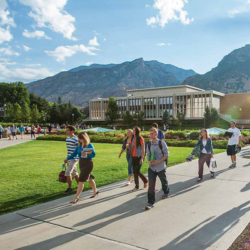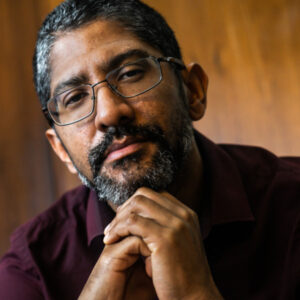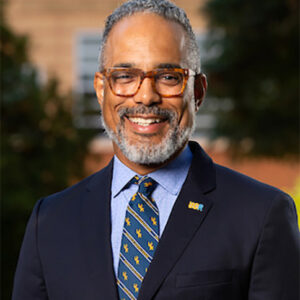“The Genealogical Imagination”
Hosted (in person) by Brigham Young University (Provo, UT) on October 6-8, 2022
Presidential Theme
Keynote Speakers
Live Conference Program
Presidential Theme

Conference Presidential Theme: “The Genealogical Imagination”
How does the study of literature and culture reveal, conceal, contest, establish, and confirm genealogy? Genealogical research is a process of investigating hidden bonds and the connections that bind and unite individuals, families, and generations. It is the study of origins, and these extend vertically and horizontally. Its horizons are always receding. Genealogical work is historically oriented with a view towards the claims made by the present on the past and vice versa. Genealogy at times confirms tradition and other times challenges it. While Nietzsche and later Foucault set the stage for genealogical thinking in the humanities (historicizing ideas of power, knowledge, discourse, and values), it was perhaps Deleuze who most clearly argued for how a critical genealogy can uncover “the origin of the values and the value of the origins.” Genealogical thinking thus serves a crucial role in preparing society for the future. As Abdias do Nascimento argues: “We must not reject out of hand the valid fundaments of our ancestral cultures, for they will be the spirit and the substance of tomorrow.”
Genealogical positioning is also a political act. In an age of political and social schisms, as divisions caused by partisanship and polarization have grown deeper, nurturing a genealogical imagination becomes both an act of resistance and potentially one of healing. Identifying bonds (whether bonds of genetics or affect) can unsettle dominant power structures and give a voice to alternative, marginalized, and virtual communities.
We invite panel and paper proposals in the humanities, qualitative social sciences, and the arts (including language, linguistics, literature, film, popular music, media, history, anthropology) that explore the genealogical imagination in the field of Luso-Afro-Brazilian studies.
Beyond the presidential theme, APSA encourages submissions in all areas of Luso-Afro-Brazilian culture, language, and literary studies.
Papers/panel sessions can be in Portuguese or English focusing on Brazil, Portugal, Lusophone Africa and/or Asia. Comparative papers/panel sessions are welcome, whether across Portuguese-speaking cultures, and/or including other linguistic blocs (Hispanic, Creolophone, Anglophone, Francophone), or across other world regions, as well as historical periods.
Confirmed Keynote Speakers: Jeferson Tenório and Daryle Williams.
Tema Presidencial: “A Imaginação Genealógica”
De que forma o estudo da literatura e da cultura revela, obscurece, contesta, estabelece e confirma a genealogia? A investigação genealógica consiste na pesquisa de laços ocultos e conexões que vinculam e unem indivíduos, famílias e gerações. A genealogia expande-se vertical e horizontalmente ao mesmo tempo em que seus horizontes se encolhem continuamente. O trabalho genealógico historicamente visa a tratar as afirmações que o presente faz sobre o passado e vice-versa. A genealogia por vezes confirma a tradição e outras vezes a desafia. Enquanto Nietzsche e, mais tarde, Foucault definem o enquadramento do pensamento genealógico nas humanidades (assim historiando concepções de poder, conhecimento, discurso e valores), foi talvez Deleuze quem mais claramente defendeu que uma genealogia crítica revela “a origem dos valores e o valor das origens”. Como propõe Abdias do Nascimento: “Seria um desperdício recusar os fundamentos válidos de nossos ancestrais. Eles são o espírito e a substância do nosso amanhã”.
O posicionamento genealógico é também um gesto político. Numa época de cismas políticos e sociais, à medida que as divisões causadas por partidarismos e polarizações se aprofundam, a defesa de uma imaginação genealógica é um ato tanto de resistência quanto, potencialmente, de cura. A identificação de vínculos (sejam estes laços genéticos ou afetivos) pode desestabilizar estruturas de poder dominantes e dar voz a comunidades alternativas, marginalizadas e virtuais.
Acolhemos propostas de painéis e de apresentações individuais nas áreas das humanidades, ciências sociais, e artes (incluindo língua, linguística, literatura, cinema, música popular, mídia, história, antropologia) que explorem a imaginação genealógica no campo dos estudos luso-afro-brasileiros.
Além do tema presidencial, a APSA incentiva o envio de propostas de apresentações em todas as áreas da cultura, língua e estudos literários luso-afro-brasileiros.
As apresentações podem ser em português ou inglês, tendo como foco o Brasil, Portugal, África e Ásia lusófonas, e/ou suas diásporas. Comunicações e mesas em estudos comparados são igualmente bem-vindas, incluindo diferentes culturas lusófonas, outros blocos linguísticos (espanhol, crioulos de base lexical portuguesa, inglês, francês), outras regiões do globo, bem como diferentes períodos históricos.
Os/As palestrantes plenários/as confirmados/as incluem: Jeferson Tenório and Daryle Williams.
Estaremos em contato posteriormente com informações sobre o envio de comunicações e mesas.
Keynote Speakers

Photo courtesy of Carlos Macedo
Jeferson Tenório was born in Rio de Janeiro in 1977. Based in Porto Alegre, he received a PhD in literary theory from the Catholic University of Rio Grande do Sul (PUCRS). His debut novel O beijo na parede (The Kiss on the Wall) was published in 2013 and subsequently named Book of the Year by the Associação Gaúcha de Escritores. Jeferson’s texts have been adapted for the theater and his stories have been translated into English and Spanish. He is also the author of Estela sem Deus (Estela without God) (2018), which was followed by his most recent novel, O avesso da pele (The other side of skin) (2020).
Jeferson Tenório nasceu no Rio de Janeiro, em 1977. Radicado em Porto Alegre, é doutor em teoria literária pela PUCRS. Estreou na literatura com o romance O beijo na parede (2013), eleito o livro do ano pela Associação Gaúcha de Escritores. Teve textos adaptados para o teatro e contos traduzidos para o inglês e o espanhol. É autor também de Estela sem Deus (2018). O avesso da pele (2020) é seu romance mais recente, publicado pela editora Companhia das Letras.

Daryle Williams (he/him/his) serves as UC Riverside’s Dean of the College of Humanities, Arts, and Social Sciences. His academic training is in Latin American history with a specialization in modern Brazil. Williams earned an undergraduate history degree and certificate in Latin American studies from Princeton University and a master’s and Ph.D. in history from Stanford University. He has been awarded grants and fellowships from the National Endowment for the Humanities, Fulbright, the Ford and Rockefeller foundations, and the Maryland Institute for Technology in the Humanities.
From 1994 to 2021, Williams served on the History Department faculty and then Associate Dean for Faculty Affairs in the College of Arts and Humanities at the University of Maryland. At College Park, Williams also held positions as graduate studies director and associate director of the David C. Driskell Center for the Study of the African Diaspora. He has been a visiting scholar at the Universidade Federal do Rio de Janeiro and Stanford.
Williams’ teaching and scholarship focus on modern Latin America, especially nineteenth- and twentieth-century Brazilian history. Most recently, his research has largely involved Atlantic slavery and emancipation in Brazil, with a strong focus on the methods and tools of the digital humanities. He is editor of the Journal of Slavery and Data Preservation and has taken the lead on several collaborative initiatives about enslaved peoples’ experiences and black digital humanities, supported by more than $7 million in awards from The Andrew W. Mellon Foundation and the National Endowment for the Humanities, among others.
With the lead support of the Mellon Foundation, his work to build the Enslaved.org online database has won widespread national media attention since it was launched on Dec. 1, 2020, including an interview on NPR and articles in National Geographic, Smithsonian magazine, and the Washington Post.
Williams was also lead editor on The Rio de Janeiro Reader: Politics, History, Culture (Duke UP, 2015) and serves as Area Editor (Brazil pre-1888) on the Dictionary of Caribbean and Afro-Latin American Biography (Oxford UP). Single-author publications include Culture Wars in Brazil: The First Vargas Regime, 1930-1945 (Duke UP, 2001), winner of the American Historical Association’s John Edwin Fagg prize, and several articles and book chapters on 19th- and 20th-century Brazilian cultural and social history.
Live Conference Program
The APSA 2022 Conference Program is now online! Please check back over the weeks to come for updates and more information.
